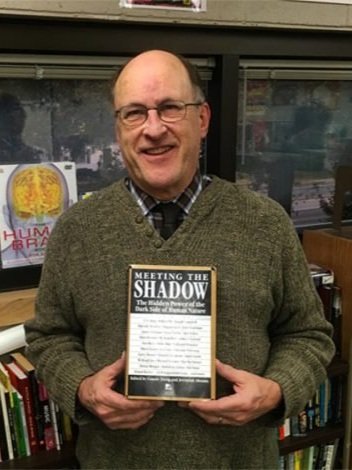Choosing our illusions without care
By Bill Bornschein | June 14, 2012
It is poetic justice that the Ernest Becker Foundation’s home base, Seattle, also provides us with the leitmotif of our age, expressed in the final lyrics of Nirvana’s song Smells Like Teen Spirit: “the denial, the denial, the denial, the denial, the denial.” We are indeed a culture of denial and the EBF Fall Conference dealt with climate change denial and the reluctance of many to accept the findings of science. This denial certainly comports with what Becker says about the unwillingness to challenge the cultural systems through which people experience an ersatz immortality. There has recently been a whole spate of books dealing with this denial. I’m thinking here of Benjamin Barber’s book Consumed and Chris Hedges’ Empire of Illusion. One recent addition has really caught my eye, James Kunstler’s Too Much Magic. Author of The Long Emergency, Kunstler is a leading analyst of peak oil and its repercussions for a society premised on constant growth and expansion. Subtitled “Wishful Thinking About Technology And The Fate Of The Nation,” Too Much Magic examines the irrational faith that we moderns have in Technology to save the day. The appeal of such a belief is that it doesn’t require any real change on our part. “They will come up with something” has become the background mantra for a culture unwilling to face the death of a particular lifestyle, which Kunstler refers to as “happy motoring.” Fantasies of flying cars of the future, algae-based energy and the like are systematically chronicled and refuted. The political implications of our cultural reset are analyzed as well. The overall picture is not pretty. Insightfully, Kunstler also connects our denial to the generational cycles described by historians Bill Strauss and Neil Howe in their book The Fourth Turning. Our culture of denial is reflective of a “third turning” wherein systems become sclerotic and more and more effort has to be put into maintaining them. The banking bailout is a prime example of this.
The aspect of Too Much Magic that really caught my attention was the way it demonstrates our Janus-like relationship to technology and how it can be a form of death denial. On the one hand, some deny science because it is a threat to their immortality ideology. On the other hand, many of the same people have a childlike faith that technology will save us. Ken Wilber has a wonderful image for this contradiction, people happily sawing off the tree limb on which they sit. Nowhere is this seen more clearly than in Kunstler’s description of Disney World. Born in the gee-whiz era of scientific miracles following WWII, the Disney experience simultaneously trades on our nostalgia for a simpler, bygone America of the small town. Listen to Kuntler’s description. “I was amused to discover some years ago, on a visit to Disney’s Magic Kingdom in Orlando, how much of the overarching metaphor in old Walt’s kinetic semiology of thrill rides and wish fulfillment galleries revolved around the invocation of death.” Later he writes, “From Main Street, the Disney World visitor moves on to the many rides featuring brushes with death, haunted houses, animatronic corpses, holographic ghosts, screaming mummies, ghouls, skeletons, coffins, graveyards and all the other stock trappings of our national bent for necromancy. The place is drenched with signifiers of mortality.” Wow! I wonder if Kunstler has read The Denial of Death. He certainly seems to be barking up the same tree. There are some dots to be connected here, namely our techno-utopianism, our cultural paralysis, and our death denial. Kunstler’s new book is an important contribution to the conversation.

